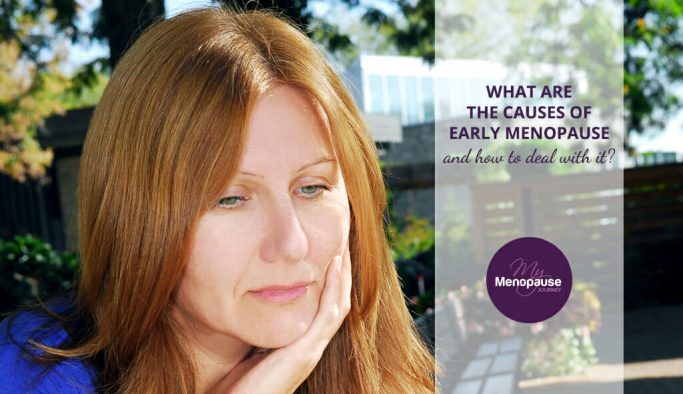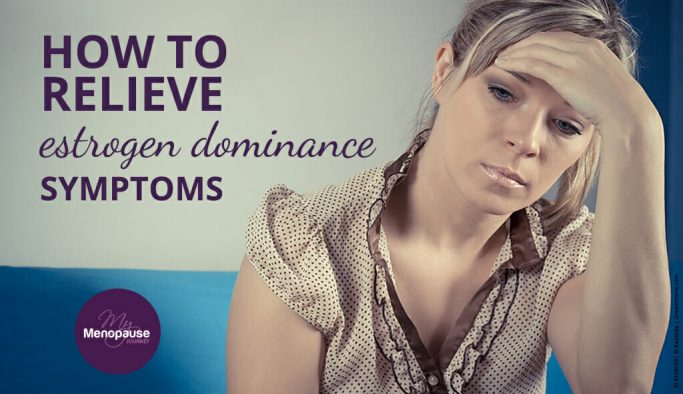Zinc is probably one of those minerals that we don’t pay much attention to. After all, it is a trace mineral. But there’s actually more about zinc than meets our eyes.
Since COVID-19 started, zinc has been on the radar as a possible immune system booster!
We need zinc in smaller amounts. But even if only small amounts are needed, it is still crucial in the body. Just because we need less of it doesn’t mean it won’t make a big difference.

What is Zinc?
Zinc is a trace mineral that is present in our bodies, particularly in our brain, eyes, liver, kidney, pancreas, adrenal glands and skin. Zinc has many functions in the body for overall health. For one, our bodies need zinc for proper insulin function and good bone and teeth mineralization.
The transfer of carbon dioxide between the lungs and the bloodstream also needs zinc. It is also notable for multiple cellular processes in our body such as:
- Metabolism
- Enzyme activity (the process when enzymes accelerate biochemical reactions in the body)
- Immunity
- Wound healing
- Protein synthesis
- Proper development and growth during pregnancy and the growing years
- Men’s health
- Breakdown of carbohydrates
- Sense of taste and smell
Its benefits include:
- Healing of acne
- Normal germination, sperm function and fertilization
- Prevention of complications in pregnancy and birth
- Good immune system function
- Good thyroid gland function
- Prevention of Diabetes Type 2
- Treatment of Gestational Diabetes
- Treatment of other conditions or diseases such as common cold, vision loss, Wilson’s disease, Alzheimer’s disease, HIV/AIDS, depression and sepsis in newborns
Now if that is not a hardworking little mineral, I don’t know what is!
Here in this video, Dr. Eric Berg explains the importance of zinc:
It’s a three-part video series where he talks about zinc and how it relates to certain diseases.
Today, zinc has been considered as a possible immunity defense for the COVID-19 pandemic. Although a lot of research has to be done, zinc, like other nutrients and compounds, may help battle this disease plaguing the world by helping to boost immunity.
Zinc for Immunity
There are foods containing micronutrients that have roles when it comes to maintaining a good immune function. And these are vitamin C, vitamin E, vitamin B6, zinc and magnesium.
These micronutrients are the ones we see in immune-boosting supplements. Zinc, in particular, has been shown to have effects on immunity against viruses and bacteria as well as responses to inflammation.
Here, Dr. Berg talks how important it is to the immune system:
So, if you think you’re one who gets easily sick, you might just need your immune system to be strengthened and supported!
Sources of Zinc
Food
For me, the best way that we can get zinc or even any nutrient would be through the food we eat. And the best food sources of zinc include:
- Oysters
- Crab and other shellfish
- Grass-fed meat
- Hemp seeds
- Pumpkin seeds
- Chickpeas
Here is a recipe that you might want to try out! It’s got about 17mg of zinc per serving. It doesn’t require much and is easy to prepare!
Now, you might be asking, where’d the greens go?
Well, green leafy vegetables and other plant-based foods aren’t the best sources of zinc. They also have compounds that prevent or slow down the absorption of zinc. Phytate, for example, can inhibit zinc absorption as well as iron and cadmium.
But this doesn’t mean that there are no plant-based sources of zinc with relatively low phytic acid content. There are actually a few and some of them are:
- Oatmeal
- Tofu
- Cashew nuts
- Sunflower seeds
- Lentils
- Peanuts
- Mushroom
- Kale
- Spinach
- Broccoli
- Dark chocolate
One of my favorite dishes to make is Dhal. There are several ways to prepare it. I tried making this vegan recipe from easypeasyfoodie.com and it is so flavorful!
Not a fan of a yellow split pea? We still got you! Here are some delicious lentil recipes that you might want to try. I know, lentils can be bland, but this lady can turn it into anything but! ?
You might be hung up on whole grains, beans or nuts having high concentrations of phytic acid. But don’t worry much because there is good news!
Phytate action can be reduced by soaking, leavening, sprouting, heating and fermenting, as in pre-soaking legumes or eating sprouts and bread made with yeast. ?
Soaking whole grains overnight with warm water will break down the phytic acid content of these foods. This will also make the minerals in these foods more available and easier for our bodies to absorb. ?
Zinc Absorption
Zinc is one of the most important trace minerals that the body needs. Now that we’ve established that, we also need to note that if we take in higher amounts of zinc, our bodies might have problems absorbing it. This is caused by low stomach acids, Irritable Bowel Syndrome (IBS) due to Chron’s or Celiac disease, and more.
Dr. Berg explains it more here:
What Prevents Zinc Absorption?
In addition to phytates having a negative effect on zinc absorption, many other factors can prevent zinc absorption. We sometimes tend to go ahead and eat portions of foods rich in zinc. But sometimes, no matter how much (or even how little) we eat, our bodies can’t absorb zinc.
Dr. Berg explains 7 weird signs of Zinc defiency here:
Supplements
As a supplement, zinc comes in the form of chelated zinc, zinc orotate, zinc gluconate, zinc acetate, zinc picolinate or zinc sulfate. It is available as a single mineral supplement, as in zinc supplement, or it can also be found in multi-mineral or multi-vitamins and minerals supplements.
Now you may have heard about cold lozenges or throat lozenges, specifically zinc lozenges. If not, these lozenges are usually medicated tablet or pastilles meant for soothing throat irritation or stopping cough temporarily.
Zinc lozenges are cold lozenges that contain zinc. According to an Open Respiratory Medicine Journal study, zinc lozenges have been found to shorten the period of cold symptoms. However, there is no substantial evidence right now showing that zinc lozenges are effective against COVID-19.
Importance in Menopause
When we go through menopause, our skin thins by more than 1% annually for the first 5 years, with collagen also decreasing at 2%. Both collagen and some essential minerals are significant in skin function and development.
In the case of essential minerals, some have been found to help optimize skin health like zinc. When it comes to the function of zinc to our skin, it exists in two forms: soluble and non-soluble.
Soluble zinc, like zinc chloride or ionic zinc, can act as an antioxidant for the skin. Moreover, non-soluble zinc, such as zinc oxide, helps protect the skin’s integrity by blocking UVA and UVB rays from causing damage to our skin. And yes, this is the common ingredient we find in our sunscreens, the physical ones.
Zinc oxide is also available as an ointment and is being used to treat skin inflammation such as eczema and burns.
When taken in higher amounts, zinc has also been found to help delay menopause by 0.3 years. Take it with vitamin B6 and you got yourself an additional 0.6 years. Isn’t that wonderful?
Menopause is a sign that our fertility is nearing its end. And that’s normal. Whether we go through it early or late, we’re meant to experience it at one point.
During menopause, our estrogen levels tend to go up and down. A rise in estrogen level will also raise our levels of zinc. If estrogen drops, it will decrease our levels of zinc.
It’s also worth noting that if our zinc level is low, we are at higher risk for osteoporosis.
Supplementing with zinc can be considered, but you will need to talk to your physician first if you don’t want side effects. I know I don’t!
When to Take Zinc?
Zinc deficiency, pregnancy and menopause are some of the good reasons to take zinc. Supplements are available in the market, but we should always keep in mind that eating different types of whole foods will help prevent micronutrient deficiency such as vitamin A, folate, zinc and iron.
Long-term effects of the lack of these nutrients in the diet can result in problems in sight, birth defects, impaired immune system or anemia.
Benefits of Zinc in Women
- Mood
A study showed that women who supplemented with zinc indicated a considerable decline in anger. Taking zinc as a single supplement compared to a multi-vitamin can increase zinc serum level more because it won’t have to worry about absorption.
- Stress
Zinc has been shown to combat oxidative stress and minimize the likelihood of getting a severe illness. Research showed that supplementing with zinc considerably reduced infection rates in parties 55-87 years old.
- Hormonal Balance
Zinc also helps with balancing hormones. It has a critical role in producing estrogen and progesterone.
- Muscle Growth and Repair
We also tend to lose muscle mass and gain muscle pain more when we advance in age. It’s a good thing that zinc helps support and strengthen our muscles and even bones.
- Sleep
Melatonin is a hormone that tells the body when to sleep and when to wake up. The body produces more melatonin at night to aid in sleep. Zinc contributes to melatonin synthesis.
- Skin
Zinc helps clear the skin by controlling oil production, killing bacteria present, reducing inflammation and blocking androgen which causes acne and facial hair.
- Collagen
Collagen is synonymous to healthy skin and hair. I definitely want both! ?
Zinc helps support collagen in our connective tissues and hair to make them stronger and healthier.
Toxicity
Did you know that the bottled drinks or packaged foods we consume can contain zinc through the galvanized container? This can result in acute toxicity because we consume more than what is needed by our body. This can further lead to nausea, abdominal pain, diarrhea, or vomiting.
Zinc toxicity can also happen when we consume zinc-rich sources for a long time. This includes supplements and food sources with high zinc. But it happens more often from supplementing with zinc than from diet.
Too much zinc can also decrease the absorption of iron and copper. So, how much zinc do we really need?
RDA for Zinc
The recommended daily allowance or RDA for women in menopause is 8mg.
Zinc and Drug Interactions
Just like other nutrients, zinc may affect the efficacy of other drugs. If you are currently taking a medication and are planning to take zinc, it would be best to consult your doctor before anything else.
FACT BOX
There are 2 kinds of zinc deficiency: inborn and acquired.
People born with a condition called acrodermatitis enteropathica have inadequate zinc absorption and transport, which leads to a deficiency. This is considered a severe case of deficiency and can suppress growth and development.
It can also cause immune system issues, severe diarrhea, slow wound healing, vision problems, changed taste and changes in behavior.
Acquired zinc deficiency is the more common kind compared to inherited or inborn deficiency. But it is only prevalent in non-industrialized countries. Some of the symptoms are the same, such as diarrhea.
At risk for deficiency are children, pregnant, lactating women as well as vegans and vegetarians.
But let’s not forget that menstruation and menopause increase our demands for nutrients. And in this case, zinc is not an exception.
References:
medlineplus.gov/minerals.html
ncbi.nlm.nih.gov/pmc/articles/PMC6010824/
urmc.rochester.edu/encyclopedia/content.aspx?contenttypeid=19&contentid=Zinc
pubmed.ncbi.nlm.nih.gov/10801947/
lpi.oregonstate.edu/mic/minerals/zinc
betterhealth.vic.gov.au/health/healthyliving/nutrition-womens-extra-needs
lpi.oregonstate.edu/mic/health-disease/skin-health/minerals
urmc.rochester.edu/ob-gyn/ur-medicine-menopause-and-womens-health/menopause-blog/august-2015/does-estrogen-help-age-skin-better.aspx
health.harvard.edu/staying-healthy/micronutrients-have-major-impact-on-health
pubmed.ncbi.nlm.nih.gov/32319538/
cdc.gov/nutrition/micronutrient-malnutrition/micronutrients/index.html
medlineplus.gov/druginfo/natural/982.html
draxe.com/nutrition/foods-high-in-zinc/
hsph.harvard.edu/nutritionsource/zinc/
en.wikipedia.org/wiki/Throat_lozenge
health.harvard.edu/blog/diet-and-age-at-menopause-is-there-a-connection-2018081014468
livestrong.com/article/553015-good-nutrition-vs-bad-nutrition/
webmd.com/sleep-disorders/what-is-melatonin
👉 What to Do Next
Don’t go just yet — especially if you’ve been feeling off and no one’s given you real answers.
Go to the START HERE page.
It’s where things begin to feel clearer. No more second-guessing, no more sorting through conflicting advice. Just calm, honest support for where you are right now.
And if you haven’t yet, download the FREE GUIDE.
It’s quick, clear, and made to help you feel better — without having to turn your whole life upside down.


Gita is the founder of My Menopause Journey. Since 2014, she has been supporting midlife women by sharing hard-earned learnings from her own experience. To advance her knowledge, Gita puts a lot of her time and effort into understanding the broad spectrum of women’s health. She immerses in extensive research about the physical, mental and emotional aspects of menopause. Gita believes in the life-changing power of healthy, holistic living — this is where she anchors her message to all women. Learn more about her marvelous mission in About us - My Menopause Journey.






Zinc is a mineral that is found in almost every cell in the human body, Despite its importance, this mineral is often taken for granted. A lot of people tend to remember zinc when they have a cold or sore throat. These people take zinc supplements and lozenges to treat colds or sore throats. However, these individuals should bear in mind that zinc won’t cure these ailments. The mineral, however, will help boost the immune system so the cold won’t develop into something more serious. In addition to these health benefits, zinc is found in many food groups and is important for nourishing the skin, boosting the functions of the reproductive system.
to read more :
Zinc is essential for menopause too! Thank you for the added information. We appreciate your contribution.